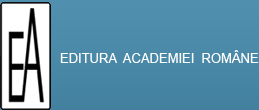Chebyshev's Problem
DOI:
https://doi.org/10.33993/jnaat302-700Abstract
The Chebyshev approximation problem is usually described as to find the polynomial (or the element of an Haar subspace) which uniformly best approximates a given continuous function. Most of the theoretical results forming the basis of this theory have not been explored by members of the St Petersburg Mathematical School, founded by P. L. Chebyshev himself. The present article briefly wants to explain why. We show that the interests of Chebyshev and his most narrow pupil, A. A. Markov sr. focussed on a more algebraic problem, solved only in 1960s by Meyman and required techniques far away from what mathematicians were able to deal with at that time.Downloads
References
Akhiezer, N. I., Über die Functionen, die in gegebenen Intervallen am wenigsten von Null abweichen, Izv. Kazansk. Soc. Phys. Math., 3, 1928.
Butzer, P. L., and Jongmans, F., P. L. Chebyshev (1821-1894) and his contacts with western european scientists, Historia Math., 16, pp. 46-68, 1989, https://doi.org/10.1016/0315-0860(89)90098-0 DOI: https://doi.org/10.1016/0315-0860(89)90098-0
Butzer, P. L., and Jongmans, F., P. L. Chebyshev (1821-1894). A guide to his life and work, J. Approx. Theory, 96, pp. 111-138, 1999, https://doi.org/10.1006/jath.1998.3289 DOI: https://doi.org/10.1006/jath.1998.3289
Carlson, B. C. and Todd, J., Zolotarev's first problem-the best approximation by polynomials of degree ≤n-2 to xⁿ-nσxⁿ⁻¹ in [-1,1], Aequationes Math., 26, pp. 1-33, 1983, https://doi.org/10.1007/bf02189661 DOI: https://doi.org/10.1007/BF02189661
Chebyshev, P. L., About integration with the help of logarithms, Lectureship thesis, St Petersburg 1847, in: 15, Vol. 5, pp. 88-140 (Russian).
Chebyshev, P. L., Report by the extraordinary professor of the St Petersburg University Chebyshev about his trip abroad, Zhurnal ministerstva narodnogo prosveshcheniya, ch. XXVIII, otd. IV, S. 2-14, in: 15, Vol. 5, pp. 246-255 (Russian).
Chebyshev, P. L., Théorie des mécanismes, connus sous le nom de parallélogrammes, Mémoires présentes à l'Academie Impériale des Sciences de St. Pétersbourg par divers savants, VII, pp. 539-568, 1854.
Chebyshev, P. L., On continuous fractions, Uch. zap. Imp. Akad. nauk, III, pp. 636-664, 1855, in: [15, Vol. II, pp. 103-126 (Russian).
Chebyshev, P. L., Drawing geographic maps, Essay, written for the Ceremonial Act in the Imperial St Petersburg University Feb. 8th, 1856, in: 15, Vol. 5, pp. 150-157 (Russian).
Chebyshev, P. L., Questions about minima connected with the approximative representation of functions (short remark), Bull. de la classe phys.-math. de l'Acad. Imp. des Sciences de St.-Pétersbourg, XVI, S. 145-149, 1857, in: 15, Vol. 2, S. 146-150 (Russian).
Chebyshev, P. L., Sur les questions de minima qui se rattachent à la représentation approximative des fonctions, Mém. de l'Acad. de St. Pétersbourg, série VI, t. VII, pp. 199-291, 1859.
Chebyshev, P. L., About functions deviating least possible from zero, Enclosure to volume XXII of zap. Akad. Nauk No 1, St. Petersburg 1873, in: 15, Vol. 2 (Russian).
Chebyshev, P. L., About functions deviating a little from zero with given values of the variable, Mém. de l'Acad. de St. Pétersbourg, LX, St. Petersburg 1880, in: 15, Vol. 4 (Russian).
Chebyshev, P. L., Selected Mathematical Papers, gostekhizdat tekhniko-teoreticheskoj literatury, Moscow-Leningrade, 1946 (Russian).
Chebyshev, P. L., Complete Collected Works, Moscow-Leningrade, 1946-1951 (Russian).
Ermolaeva, N. S., The finite and infinte in the works of P. L. Chebyshev, in: A. G. Barabasheva, (Ed.): Infiniteness in Mathematics: Philosophical and Historical Aspects, Yanus-K, Moscow, 1997 (Russian).
Goncharov, V. L., The theory of best approximation of functions, in: Akademija nauk SSSR (Ed.), The Scientific Heritage of P. L. Chebyshev, vol. 1: Mathematics, Moscow-Leningrade 1945, pp. 122-172 (Russian). Translated in J. Approx. Theory, 106, pp. 2-57, 2000. DOI: https://doi.org/10.1006/jath.2000.3476
Gusak, A. A., Prehistory and the beginning of the development of approximation theory, istoriko-matematicheskie issledovaniya, 14, pp. 289-348, 1961 (Russian).
Lyapunov, A. M., Pafnuty Lvovich Chebyshev, soobshcheniya Kharkovskogo matematicheskogo obshchestva, 2-ya seriya, IV, N⁰ 5 and 6, (1895), in: 14, S. 9-21 (Russian).
Markov, A. A., About a question of D. I. Mendeleev, zap. akad. nauk, 62, 1890 (Russian).
Markov, A. A., About functions deviating the least possible from zero, composed after lectures of the member of the academy, A. A. Markov, St. Petersburg 1906 (Russian).
Markov, V. A., About functions deviating the least possible from zero on a given interval, tipografiya imp. akad. nauk, St. Petersburg 1892 (Russian).
Meyman, V. A., Polynomials deviating least from zero with an arbitrary number of given coefficients, Soviet Math. Dokl., 1, pp. 72-75, 1960.
Prudnikov, V. E., P. L. Chebyshev-Scientist and Teacher, gos. uchebno-pedagog. izd. min. prosveshch. RSFSR, Moscow 1950 (Russian).
Prudnikov, V. E., Pafnuty Lvovich Chebyshev. 1821-1894, Nauka, Leningrade 1976 (Russian).
Steffens, K.-G., Zur Entstehungsgeschichte der Approximationstheorie unter besonderer Berücksichtigung der Beiträge der St. Petersburger Mathematischen Schule um P. L. Čebyšëv, Dissertation, Duisburg, 2000.
Tokarenko, A. M., The contribution of N. B. Delone to the development of the mechanism theory, in: A. N. Bogolyubov (Ed.): Mathematical Knowledge of Nature in its Development, Naukova dumka, Kyiv, pp. 153-156, 1987 (Russian).
Vasilev, A. V. and Delone, N. B., P. L. Tschebyschef, Teubner, Leipzig, 1900.
Zolotarev, E. I., About a question on smallest quantities, Lectureship dissertation, St. Petersburg 1868, in: 30, vyp. 2, pp. 130-166 (Russian).
Zolotarev, E. I., Complete Collected Works, izd. AN SSSR, Leningrade, 1932 (Russian).
Downloads
Published
Issue
Section
License
Copyright (c) 2015 Journal of Numerical Analysis and Approximation Theory

This work is licensed under a Creative Commons Attribution 4.0 International License.
Open Access. This article is distributed under the terms of the Creative Commons Attribution 4.0 International License, which permits unrestricted use, distribution, and reproduction in any medium, provided you give appropriate credit to the original author(s) and the source, provide a link to the Creative Commons license, and indicate if changes were made.










